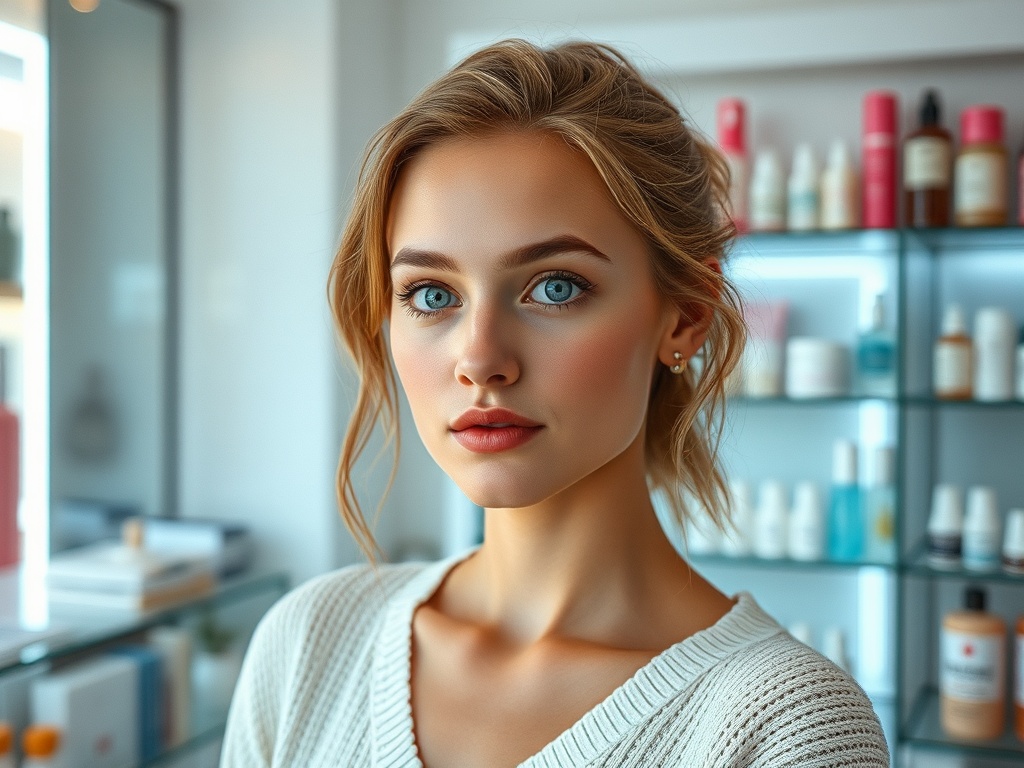
The beauty industry is in the midst of a digital revolution that is redefining how brands connect with consumers, manage operations, and innovate their product offerings. As technology continues its rapid advancement, beauty brands are recognizing the importance of adapting to these changes. The shift to digital is not just a trend; it’s a fundamental evolution that is here to stay. With the rise of e-commerce, the influence of social media, and advancements in technology such as augmented reality, the future of beauty looks promising yet challenging. To thrive in this environment, brands must proactively embrace new technologies and adapt their strategies accordingly. In this article, we will delve into the key digital trends shaping the future of the beauty industry, touching on aspects from e-commerce to sustainable practices.
One critical player in facilitating operational efficiency is Altegio beauty management software. By providing a complete solution for appointment scheduling, inventory management, and customer relationship management, Altegio streamlines processes, allowing beauty brands to focus on what truly matters—creating outstanding products and providing exceptional customer service. This kind of software empowers beauty professionals to manage their businesses more effectively while adapting to digital trends that consumers are eager to explore.
Rise of E-commerce in the Beauty Sector

The beauty industry is experiencing a significant transformation with e-commerce extending its reach. In recent years, many consumers have transitioned from brick-and-mortar shopping to online platforms. This shift is not only reshaping purchasing behaviors but also prompting brands to rethink their marketing strategies. The convenience of online shopping combined with the ability to access a myriad of products has created a thriving digital marketplace. This trend shows no signs of slowing down, and brands that fail to capitalize on e-commerce risk being left behind.
Moreover, the mobile shopping experience is becoming critical in the beauty sector. Beauty brands are investing in optimizing websites and developing user-friendly applications. A seamless mobile experience can significantly boost customer engagement and conversions. As more consumers shop on their mobile devices, brands need to ensure that their online experience is as engaging as possible. Here are some strategies brands are employing:
- Responsive website design that caters to mobile users
- Fast loading times to minimize abandonment rates
- Mobile-specific promotions and discounts to entice app downloads
The Impact of Social Media Influencers

Social media influencers have become indispensable assets in the beauty industry. These influencers wield significant power, shaping consumer perceptions and driving trends through their platforms. They can create authentic connections with audiences and deliver messages that resonate on a personal level. Many beauty brands are shifting their marketing focus toward influencer collaborations, leveraging their reach to target niche markets effectively.
This rise in influencer-led marketing can be categorized into various strategies:
- Brand collaborations that align the influencer’s aesthetics with the brand’s identity
- Sponsored content that includes product reviews, tutorials, and giveaways
- Long-term partnerships to cultivate brand loyalty and trust
Adoption of Augmented Reality (AR)
Augmented Reality is becoming a game-changer in the beauty industry, allowing consumers to visualize how products will appear on them before making a purchase. Virtual try-on technology is enhancing customer experiences, leading to higher satisfaction and lower return rates. Many brands are investing heavily in AR to provide this innovative experience. It helps consumers feel more confident in their choices and fosters an emotional connection with the brand.
| AR Benefits | Impact on Consumer Behavior |
|---|---|
| Enhanced Shopping Experience | Increased Confidence in Purchases |
| Reduced Return Rates | Greater Customer Satisfaction |
| Higher Engagement | Improved Brand Loyalty |
Sustainable and Ethical Practices
Today’s consumers are increasingly conscious of the brands they support, leading to a significant demand for sustainable and ethical practices in the beauty industry. Digital platforms are facilitating transparency, allowing consumers to scrutinize sourcing and manufacturing processes. Brands are being held accountable, and those that prioritize sustainability are reaping the rewards. As consumers look for authenticity, brands that showcase their sustainable efforts tend to resonate more deeply with their audience.
Moreover, some brands are implementing the following practices:
- Using eco-friendly packaging materials
- Sourcing ingredients ethically and transparently
- Incorporating charitable initiatives into their business models
Data-Driven Decision Making
The ability to collect and analyze data has become integral for beauty brands aiming to thrive in the digital age. Understanding consumer preferences, purchase behaviors, and feedback enables brands to tailor their offerings more effectively. Utilizing analytics for decision-making enhances not only marketing strategies but also overall operational efficiency. As the industry moves forward, leveraging data insights for personalization and consumer engagement will be vital.
Personalization techniques powered by data insights help in offering unique shopping experiences. Brands are utilizing customer data to:
- Deliver personalized product recommendations
- Create targeted marketing campaigns based on consumer behavior
- Enhance customer experience through tailored communications
Conclusion
The beauty industry’s future is undeniably intertwined with digital trends that demand adaptability and innovation. Brands must embrace the rise of e-commerce, leverage the power of social media influencers, integrate augmented reality experiences, commit to sustainability, and utilize data analytics. As these trends evolve, they will continue to shape consumer behaviors and expectations, making it critical for beauty brands to stay at the forefront of this digital transformation. The brands that will thrive are those that proactively engage with these trends and set themselves apart in an ever-competitive landscape.
Frequently Asked Questions
- What online platforms are most popular for beauty e-commerce? Popular platforms include brand-specific websites, Amazon, and beauty marketplaces like Sephora and Ulta.
- How can beauty brands effectively use social media influencers? Brands should identify relevant influencers, establish authentic relationships, and create collaborative content that aligns with their vision.
- What are the benefits of using augmented reality in the beauty industry? AR enhances customer experience by allowing consumers to visualize products on themselves, reducing return rates and increasing satisfaction.
- Why is sustainability important in the beauty industry? Sustainability builds consumer trust, meets growing ethical demands, and can differentiate brands in a crowded market.
- How can brands collect and utilize consumer data? Brands can collect data through website analytics, customer feedback, and survey tools to refine their marketing strategies and improve offerings.










